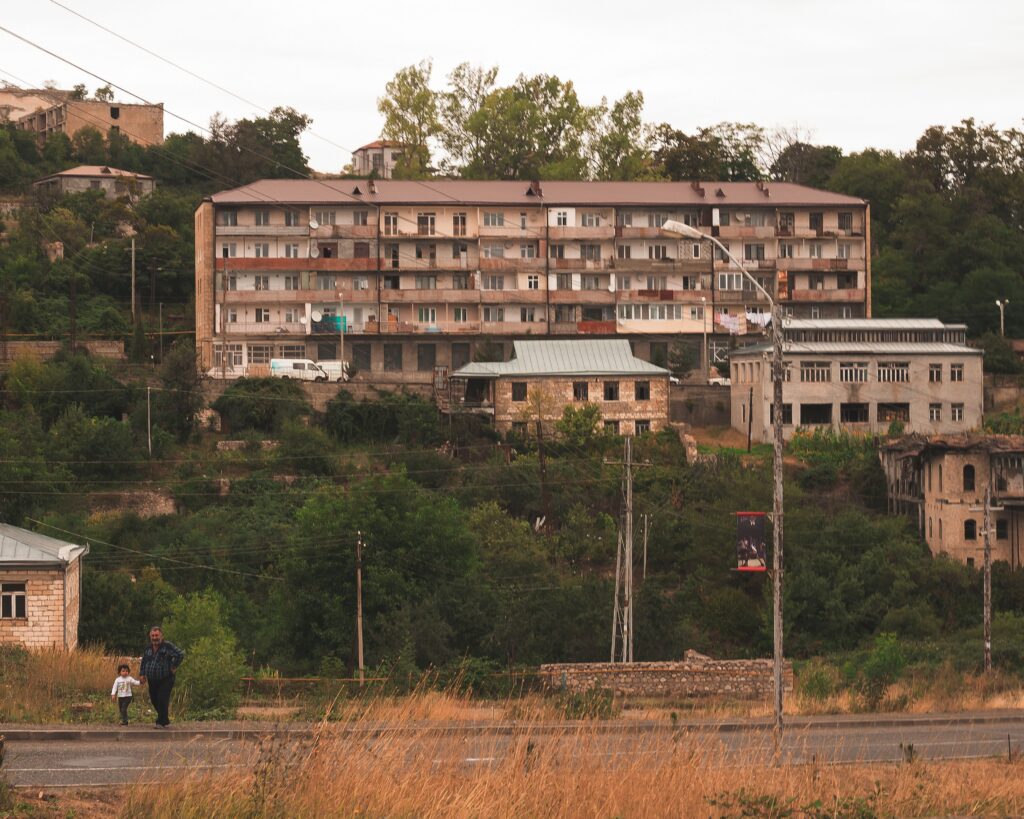The Caucasus region finds itself ensnared in a tumultuous situation, with the fate of the Armenian populace in Karabakh teetering on the edge. Following a period of heightened discord between Azerbaijan and the Armenians residing in Karabakh, coupled with a worsening humanitarian predicament due to the sealing of the Lachin corridor, Baku’s administration launched a military endeavor on September 19. This was aimed at neutralizing local armed groups and terminating the region’s autonomy. This concise military endeavor reached its conclusion within a day, resulting in the disbandment of the erstwhile Autonomous Oblast of Nagorno-Karabakh.

Azerbaijan rationalized this military intervention by referencing the fatalities of numerous individuals, both combatants and non-combatants, in the days leading up to the operation due to explosive devices. The confrontations led to the demise of a minimum of 200 Armenian inhabitants of Karabakh, inclusive of 10 non-combatants, with Baku’s casualties remaining undisclosed. Moreover, 8 peacekeepers met their end due to an unintended bombardment of their armored vehicle.
Unrest has broken out in Yerevan, with animosities towards Moscow intensifying. Armenia’s Prime Minister, Nikol Pashinyan, has witnessed the uprising of thousands. Concurrently, demonstrations have taken place at the Russian Embassy, with accusations against the Kremlin of forsaking Armenia and breaching commitments. Armenia and Russia, once close allies, have seen their relations strain post-Pashinyan’s election and Armenia’s endeavor to diversify its international relations, fostering stronger bonds primarily with the European Union and the United States.
Despite escalating tensions between Pashinyan and Putin and the rising anti-Russian sentiments in Armenia, Yerevan’s reliance on Moscow remains substantial, spanning military, economic, and energy sectors. Armenia persists as a formal ally in several Russian-dominated economic and security conglomerates, including the CSTO.
On September 20, a ceasefire accord, brokered by Russia, was reached, underscoring Russia’s pivotal role in the Caucasus yet again. Both factions consented to the withdrawal of all Armenian forces from the area and the total disarmament of local armed factions. Nonetheless, indications are that a faction within the Armenian populace in Karabakh has resisted disarmament, leading to divergent viewpoints, with one faction advocating for continued resistance, and the other urging capitulation.
The paramount concern at present is the destiny of the indigenous Armenian populace and averting a large-scale departure. Addressing this concern necessitates a substantial commitment from Azerbaijan to safeguard the rights of Armenians in the region. A suite of initiatives aimed at fostering harmonious and enduring cohabitation should be contemplated, including the proposition of dual citizenship for local Armenians and extensive cultural autonomy, ensuring the preservation of cultural identity along with fundamental rights and legal safeguards.
To harmonize the prevailing circumstances and lay the foundation for a permanent resolution, the incorporation of political figures from the preceding regime as interim entities could be beneficial. These entities could be instrumental in fostering communication and accord between the communities and aiding in the cultivation of mutual trust. Lastly, fostering reconciliation and dialogue between the Armenian and Azerbaijani communities is vital, potentially through educational and intercultural initiatives and the implementation of stringent repercussions for manifestations of ethnic animosity.
Insider Release
Contact:
DISCLAIMER
INSIDER RELEASE is an informative blog. This blog discusses various topics. It is emphasized that the ideas and concepts, although based on research from official sources, result from free evaluations by the writers. The BLOG, in full compliance with the principles of information and freedom, is not classified as a press site.









More Stories
Chinese Underground Cities: History, Uses, and Future Prospects
The Evolving Role of Private Military Companies in African Conflicts
Geopolitical Dynamics February 2024